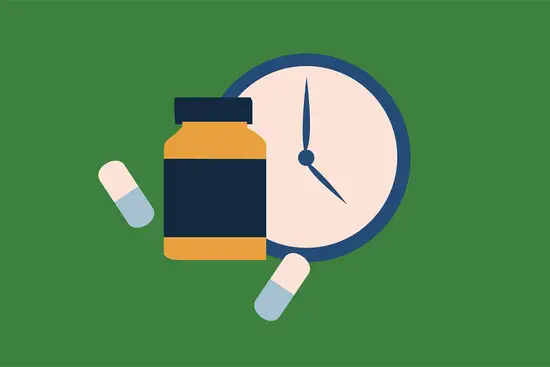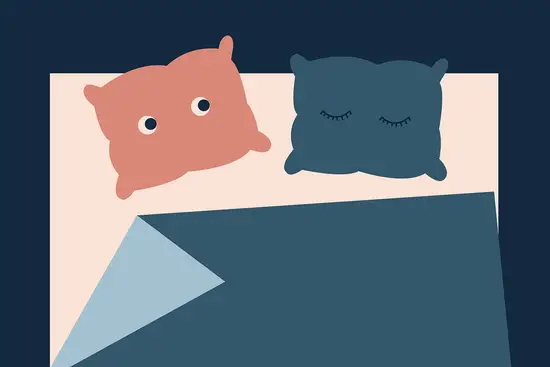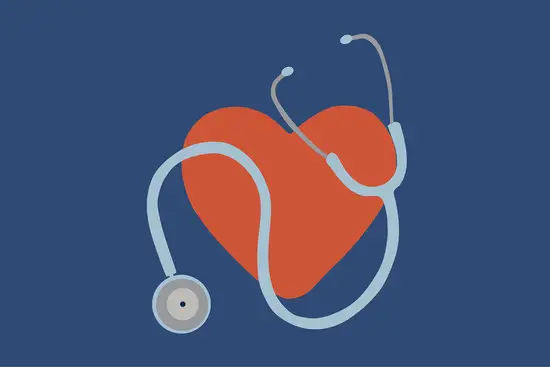Key points
You’ve probably heard that you need eight hours of sleep per night, but did you know that this isn’t always the case? Read on to find out more on the following topics:
- how much sleep do I need?
- why eight hours isn’t the magic number
- why do we need sleep?
- what can influence how much sleep you need
- things to try if you feel your sleep needs aren’t being met.
Does everyone need the same amount of sleep?
When it comes to your sleep, there’s no one-size-fits-all amount that works for everyone. Maybe you’re someone who goes to bed late, rises early and wakes up feeling refreshed and ready to take on the day.
Or, maybe you’re someone who, no matter how many hours you get, always wakes up feeling like you need a little more sleep.
If you’re asking yourself: how many hours of sleep do I need? Then this article is for you.
We’ve packed it with everything you need to know about what determines how much sleep you need, how to recognise if your sleep needs aren’t being met and simple steps you can take to get the sleep you need.
To start with, let’s quickly address why we need to sleep. Science hasn’t yet revealed everything about the functions of sleep, but we do know that getting enough sleep is incredibly important for your health and wellbeing.
We often think of sleep as a time when your body powers down and is totally at rest, but in fact the very opposite is true. When you sleep, your mind and body continue to work extremely hard.
When you’re awake, you take in an enormous amount of data, both in what you experience and how you feel emotionally, and sleep is when your brain processes all of this information and forms it into memories.1
Our bodies also use sleep to carry out essential maintenance and housekeeping, for example repairing the daily wear to our joints and muscles, boosting the immune system and ridding the body of waste products that have built up over the day.2
It’s well established that poor sleep can increase your risk of developing major health problems. There’s a wealth of studies that show links between poor sleep and increased risk of many illnesses and diseases, such as diabetes, cancer, heart disease and Alzheimer’s disease.
So sleep is absolutely essential for your body and mind to function at their best. When you get enough sleep, you wake feeling refreshed and ready to tackle the day. When you don’t get enough, your alertness, mood and productivity all suffer.
Which brings us nicely to our main topic: how much sleep you need.
How much sleep do you need?
The amount of sleep per night that a person requires in order to be able to function optimally, without feeling sleepy, is their sleep need.
But how many hours of sleep should you get? Ask most people and they will likely put the figure at around eight hours. While this is a commonly-held belief and a good average, it’s not necessarily correct: your sleep need is unique to you.
Our individual sleep need may be anything from 5-11 hours and is determined by many factors, including age, genetics, sex, environment and lifestyle.
Are you getting enough sleep?
If you don’t feel like you’re getting enough sleep, Sleepstation can help. Our highly-skilled team will work with you to identify factors affecting your sleep and we’ll provide you with a plan and all the support and guidance you need to make sure you’re on track to get the right amount of sleep for you.
How your sleep need changes with age
In 2015, The National Sleep Foundation (NSF) published scientifically-based guidelines on the amount of sleep we require at each stage of our lives. They grouped sleep requirements into nine different age categories, as shown below.3
| Newborns | 0–3 months | 11–19 hours |
| Infants | 4–11 months | 10–18 hours |
| Toddlers | 1–2 years | 9–16 hours |
| Pre-schoolers | 3–5 years | 8–14 hours |
| School-aged children | 6–13 years | 7–12 hours |
| Teenagers | 14–17 years | 7–11 hours |
| Younger adults | 18–25 years | 6–11 hours |
| Adults | 26–64 years | 6–10 hours |
| Older adults | 65 years plus | 5–9 hours |
The figures above show the broadest range of hours which may be appropriate for each age group. It’s important to keep in mind that the guidelines aren’t set in stone, so some people’s sleep need may fall outside of these ranges and still be ideal for them.
Babies and children likely need more sleep as they are going through periods of rapid learning, development and skill acquisition, and long periods of sleep are necessary for all of these newly acquired skills to be established.4
Similarly, in our teenage years, with the onset of puberty, our body clock alters slightly, we develop rapidly and are still growing and learning, so need extra hours of sleep to cope with the demands of a growing body and mind.5
Even as an adult, your sleep needs are not clear-cut. There’s an inverse relationship between amount of sleep and increasing age: the older we get, the less we tend to sleep.
It’s not necessarily the need for sleep that’s decreasing in the older adult age group, but the ability to get the amount of sleep needed. Older adults often experience a shorter sleep duration due to existing medical conditions and the use of medication.6
Age is one example of how sleep need is different between individuals. But almost everything about your sleep is unique to you. The same can be said about sleep problems, they are also as individual as you are.
At Sleepstation, we understand the importance of looking at each person’s sleep problem individually. If you need to improve your sleep, see if we can help you with our tailored approach to your personal sleep issue.
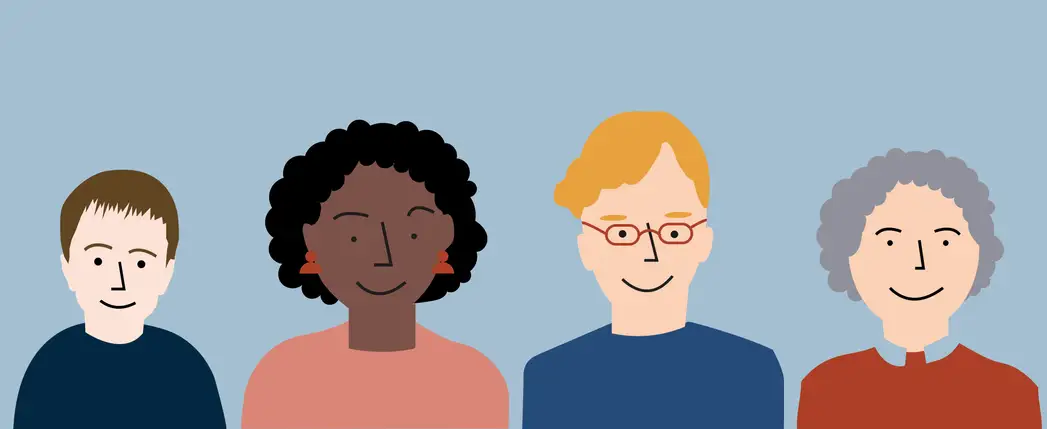
What drives your sleep need?
Your individual sleep need is regulated by two important biological elements: your circadian rhythm and sleep homeostat, so let’s have a quick look at what both of these are.
Circadian rhythm
Deep in the brain, your body has its own internal clock. This is the master clock in the body and is usually what people refer to as the body clock. This clock cycles roughly every 24 hours.
Men tend to have a slightly longer cycle than women. Men have an average cycle of 24 hours and 11 minutes while for women it’s 24 hours and five minutes.7 It’s your body clock that controls the functions in the body that are responsible for making you feel drowsy or alert.
Circadian rhythms are 24 hour cycles that occur in the body. Many processes in the body follow circadian rhythms, for example your body temperature rising and falling throughout the day.
So when we’re talking about sleep, circadian rhythm refers to the 24 hour cycle of being asleep, waking up and then going back to sleep.
Sleep homeostat
The other driving force behind your sleep need is the sleep homeostat (or sleep drive). This is the mechanism by which the longer you’re awake, the more your body signals to you that you want to sleep.8 9
When you wake in the morning, your sleep drive is at its lowest. As you go through your day, you slowly build up this drive. So, the longer you’re awake, the stronger your drive to sleep becomes.
During sleep this need reduces, and when we wake from a good night’s sleep, the need to sleep should be at its lowest and the cycle starts again.
When you’re getting enough sleep, your circadian rhythm and sleep homeostat are working in balance. You should wake up feeling refreshed and your energy level should be enough to get you through the day.
Sadly this is often not the case and many of us can relate to the feeling of waking up still tired and sometimes feeling like our energy levels have not been topped up during our sleep. These are both signs that your sleep needs are not being met.
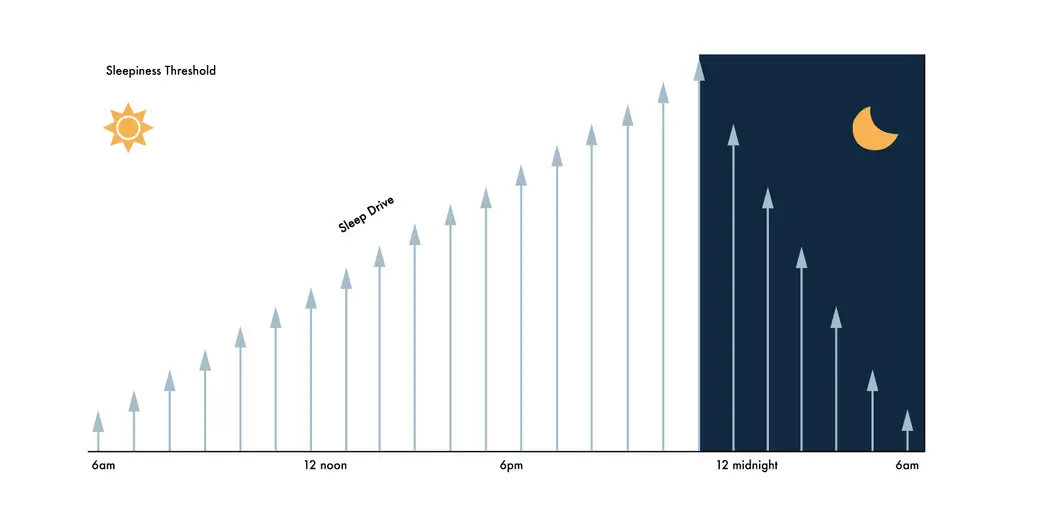
Your sleep need is written in your genes
Genetics undoubtedly plays a huge role in determining our sleep. For example, while some people are night owls, others are often up with the larks, and this is down to differences in genes regulating their circadian rhythms.10
Variations in a group of genes called clock genes can cause our body clock to run faster or slower.11 12 Differences in clock genes have also been shown to alter sleep drive1 while other genes have been identified that regulate sleep duration and influence how early certain people need to go to sleep.13
Variants have also been identified that result in very short sleep duration, where individuals need only 4–6.5 hours per night to meet their sleep need.14 But there’s a big difference between genetically needing only five hours of sleep to thrive and only allowing yourself five hours of sleep.
You may think that you fall into this category, but these short sleeper variants are actually incredibly rare. Less than 1% of the population can get by on such limited sleep.
For the rest of us, we often believe that we’re doing well on very little sleep, when in fact we need much more to be at the top of our game. Even moderate sleep deprivation can affect how well our minds and bodies function.
Research has shown that sleep deprivation affects the brain in a similar way to drinking alcohol.15 To put this in perspective, getting less than six hours of sleep impairs your brain function in the same way as drinking two bottles of beer.
Genetic studies are now helping to identify both genes that regulate our sleep and those associated with sleep disorders16 and it’s likely that many more genes remain to be identified that control and regulate our sleep.
While we can’t change our genes, it can be reassuring to know that, to a large extent, our sleep need is written in our individual genetic makeup.
You may find yourself feeling guilty when you sleep-in or feel too sleepy to do something, but by acknowledging that your body is pre-programmed to require a certain amount of sleep for you to feel at your best, you can do away with this unnecessary guilt.
Your sleep need is influenced by your lifestyle and environment
The environment around you is an important influencer on your sleep need. As our circadian rhythm is highly regulated by sunlight, the seasons can affect how much sleep we require.
In summer, we tend to rise earlier and sleep less, whereas in the cold and dark of winter, we want to sleep more. Similarly, some cultures, especially in hot countries, enjoy an afternoon nap during the hottest months, which has an obvious shortening effect on the night-time sleep need.
Your lifestyle has an impact on your sleep need too. Highly active people, like professional athletes, may need more sleep than someone with a more sedentary lifestyle.
Sleepstation can help you to recognise factors in both your lifestyle and environment which may be impacting on your sleep and with our support, you’ll learn ways to improve your sleep and ensure that you’re meeting your sleep need.
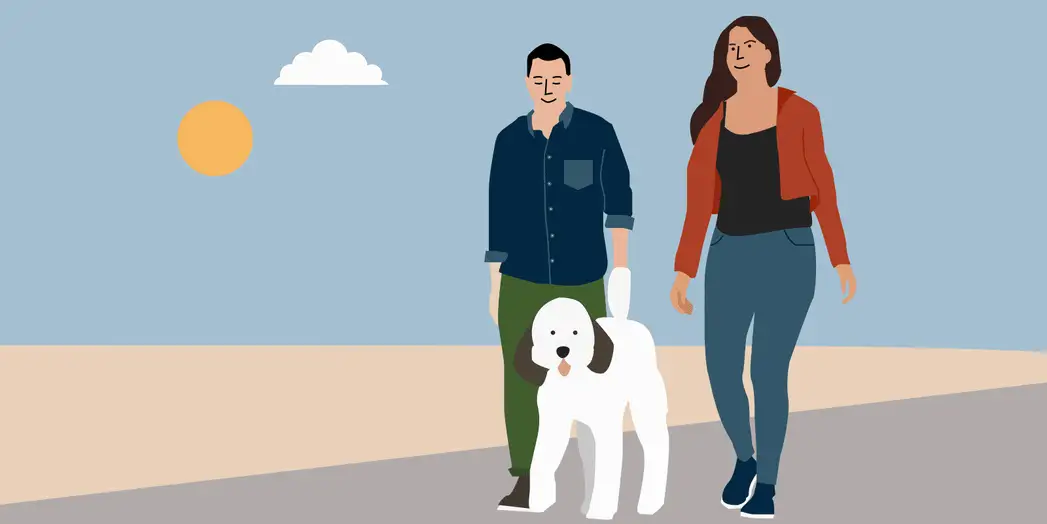
Sleep debt: when sleep need isn’t being met
Undeniably, without enough sleep, the human body quickly suffers: too little sleep can affect your metabolism, mood and brain function and is implicated in the development of many diseases.17 18
When we have a bad night’s sleep, we tend to assume that we can make it up the next night by sleeping longer. While this may work in the very short-term, it doesn’t work long-term.
Trying to catch up sleep at the weekend also can’t replace getting regular, good-quality, adequate duration sleep.19
While most people acknowledge that a healthy lifestyle, good diet and regular exercise are all necessary for maintaining our health, an adequate amount of sleep is equally as important, and is all too frequently overlooked.
We now live in a world that embraces the notion of a 24-hour society. Shift-working is common across many industries and we often cram our days with activity, while neglecting our sleep.
We’re spending longer indoors, with lifestyles in which we’re constantly exposed to artificial light from our devices and electric lighting. With so many factors at play, it’s no surprise that at least a third of people are now thought to be sleep-deprived.
But there are certain simple steps you can take to try to ensure that you’re getting enough sleep. An easy first step is to be mindful of how you feel. If you’re waking up refreshed and able to go about your day without feeling sleepy, chances are your sleep need is met.
If you find yourself lacking in energy, not able to get out of bed in the morning and struggling with your day, you may not be getting the amount of sleep that is right for you.
Similarly, if you feel like you can’t sleep, then you need to have a think about what could be coming between you and your sleep. Read on to find out more about how to develop good sleep habits and what to do if you need help getting back to sleeping well.
Are you getting enough sleep?
Could you benefit from more sleep? Check your sleep score and find out how to improve it.
Simple steps to ensure your sleep needs are met
Now you know more about what influences your sleep need, but what can you do if you don’t think you’re getting enough sleep?
As a first step, we’re going to go over some areas you might want to explore if you think you’re not managing to get as much sleep as you need.
Your lifestyle can have a big impact on your sleep, often without you even realising. Let’s take a look at some easy tweaks to your lifestyle that could bring about big benefits to your sleep.
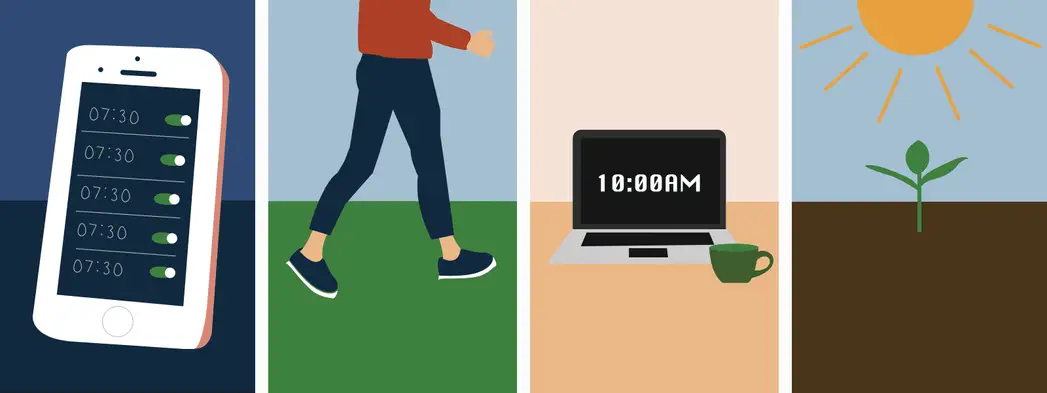
Regulate your body clock
We’ve talked about how your body clock is regulated by exposure to sunlight. Spending some time every day outside in natural daylight is one way to make sure your body clock is set correctly. With home-working, commutes and offices lit with bright electric lighting, your body clock can easily get out of sync.
The simplest way to ensure that your body clock is properly regulated is to get exposure to daylight each day and, if possible, morning light. Taking a morning stroll or making time to get outside at some point in the day will really benefit your body clock.
As evening falls, the opposite is true. You want to wind down exposure to bright light as it gets closer to bedtime. Keep lighting low in your home, make your bedroom as dark as possible and avoid exposure to bright light sources.
This includes looking at screens like smart phones, TVs, tablets and computers. These all emit blue light which your brain interprets similarly to sunlight. Set yourself a limit to scroll through social media and avoid spending all evening on your favourite streaming site.
Your sleep environment can have a big impact on how well you sleep, so it’s a good idea to check that you have the ideal bedroom setup, with as few light sources as possible to disturb you. This includes even the smallest power indicators on chargers and plugs.
On the other hand, you might want to use light to your advantage in the morning — consider swapping out your sound-based alarm clock for a light-based one and you may find waking becomes easier.
Add some exercise into your day
Exercise can be great for promoting good sleep and increased activity should increase your sleep need. If you’re finding it difficult to get to sleep, consider adding some exercise into your day to see if it influences how sleepy you are by bedtime.
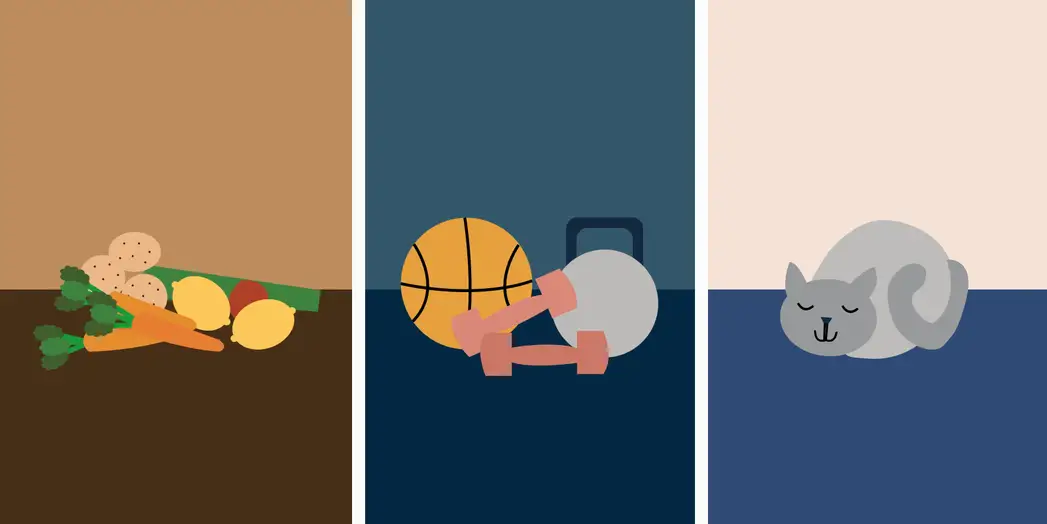
Is diet affecting your sleep?
If you feel like your sleep need is about right but you’re not managing to get to sleep, don’t overlook your diet. Do you drink caffeine late in the day? Could your alcohol intake be coming between you and sleep?
Even what you’re eating and how late you eat can affect how well you go on to sleep, so it’s worth being mindful of how close to bedtime you’re eating, if you’re finding it hard to get to sleep at night.
For example, if you get heartburn after certain foods, you might want to avoid these in the run up to bed. Heavy meals can also take a while to digest, with studies finding that high-fat or high-carbohydrate meals can affect your sleep.20 21
You also want to make sure you’re not going to bed hungry as this can disturb your sleep. Waking up in the might with a rumbling belly is not ideal when you’re trying to get a good night’s sleep.
Can you improve your wellbeing?
Your health and wellbeing also play roles in your sleep, so if you feel like you’re getting plenty of sleep but are still waking up feeling unrefreshed then it’s a good idea to consider your mental and physical wellbeing.
Stress, anxiety and depression can all impact on sleep, so taking care of your mental health can help to improve your sleep too. Finding ways to relax and destress before bed can be helpful if you feel like mental health issues are stopping you from sleeping.
And finally, sleep loves routine.
We can’t stress this enough. If you can keep to a regular schedule of waking up and going to sleep at the same time, your sleep will thank you. If your lifestyle means that this isn’t possible, even just following a very simple wind-down routine before bed can help.
If after all of these considerations, you still feel like your sleep need is not being met, then you may have insomnia and this is where we can help. We specialise in helping people to improve their sleep and overcome insomnia.
We’ve helped thousands of people take back control of their sleep, and their feedback speaks for itself. We understand that there are many reasons why you might not be getting the sleep you need and we can help you to identify and address what’s keeping you from getting a great night’s sleep.
At Sleepstation, we use Cognitive Behavioural Therapy for insomnia (CBTi), an approach that’s both highly effective and gives long-lasting results. Our programme is built on decades of sound science and delivered with a personal touch.
Throughout the course, our team of sleep coaches are on hand to offer guidance and support to you. They’ll be there to help you develop the tools and skills needed to remove the obstacles that come between you and a life of great sleep.
So if you feel like your sleep needs are not being met or you may have a sleep disorder, take the first step to sleeping well today. Answer a few short questions about your sleep and see how we can help you to take back control and get the sleep that you need.
Summary
- We often don’t prioritise sleep as highly as we should.
- Getting enough sleep is imperative for maintaining a healthy body and mind.
- Your sleep need is as unique as you are and is influenced by biology, lifestyle and environment.
- Anything from 5-11 hours of sleep per night can be considered normal.
- If you’re waking feeling refreshed and can go through your daily life without feeling sleepy then your sleep need is being met.
- If you’re not, then Sleepstation can help you to determine your individual sleep need and provide you with the means to improve your sleep.
References
- Zielinski MR, McKenna JT, McCarley RW. Functions and mechanisms of sleep. AIMS Neurosci. 2016;3(1):67–104. ↩︎
- Z Assefa S, Diaz-Abad M, M Wickwire E, M Scharf S. The functions of sleep. AIMS Neurosci. 2015;2(3):155–71. ↩︎
- Hirshkowitz M, Whiton K, Albert SM, Alessi C, Bruni O, DonCarlos L, et al. National Sleep Foundation’s updated sleep duration recommendations: final report. Sleep Health 2015;1(4):233–43.. ↩︎
- Camerota M, Tully KP, Grimes M, Gueron-Sela N, Propper CB. Assessment of infant sleep: how well do multiple methods compare? Sleep. 2018;41(10).
↩︎ - Teens and sleep: Why you need it and how to get enough. Paediatr Child Health. 2008;13(1):69–72. ↩︎
- Colten HR, Altevogt BM. Sleep disorders and sleep deprivation: an unmet public health problem. Institute of Medicine (US) Committee on Sleep Medicine and Research. Washington, DC: The National Academies Press; 2006. ↩︎
- Duffy JF, Cain SW, Chang A-M, Phillips AJK, Münch MY, Gronfier C et al. Sex difference in the near-24-hour intrinsic period of the human circadian timing system. Proc Natl Acad Sci U S A 2011; 108: 15602–15608. ↩︎
- Ashbrook LH, Krystal AD, Fu Y-H, Ptáček LJ. Genetics of the human circadian clock and sleep homeostat. Neuropsychopharmacology. 2020;45(1):45–54. ↩︎
- Deboer T. Sleep homeostasis and the circadian clock: Do the circadian pacemaker and the sleep homeostat influence each other’s functioning? Neurobiol Sleep Circadian Rhythms. 2018;5:68–77. ↩︎
- Kalmbach DA, Schneider LD, Cheung J, Bertrand SJ, Kariharan T, Pack AI et al. Genetic basis of chronotype in humans: Insights from three landmark GWAS. Sleep 2017; 40. ↩︎
- Ebisawa T. Circadian rhythms in the CNS and peripheral clock disorders: human sleep disorders and clock genes. J Pharmacol Sci. 2007;103(2):150–4. ↩︎
- Franken P, Thomason R, Heller HC, O’Hara BF. A non-circadian role for clock-genes in sleep homeostasis: a strain comparison. BMC Neurosci. 2007;8(1):87.
↩︎ - Kurien PA, Chong SYC, Ptáček LJ, Fu Y-H. Sick and tired: how molecular regulators of human sleep schedules and duration impact immune function. Curr Opin Neurobiol. 2013;23(5):873–9.
↩︎ - D’Ambrosio S, Castelnovo A, Guglielmi O, Nobili L, Sarasso S, Garbarino S. Sleepiness as a local phenomenon. Front Neurosci. 2019;13:1086. ↩︎
- Williamson AM, Feyer AM. Moderate sleep deprivation produces impairments in cognitive and motor performance equivalent to legally prescribed levels of alcohol intoxication. Occup Environ Med. 2000;57(10):649–55. ↩︎
- Sehgal A, Mignot E. Genetics of sleep and sleep disorders. Cell. 2011;146(2):194–207. ↩︎
- Krueger JM, Frank MG, Wisor JP, Roy S. Sleep function: Toward elucidating an enigma. Sleep Med Rev. 2016;28:46–54. ↩︎
- Chaput J-P, Dutil C, Sampasa-Kanyinga H. Sleeping hours: what is the ideal number and how does age impact this? Nat Sci Sleep. 2018;10:421–30. ↩︎
- Depner CM, Melanson EL, Eckel RH, Snell-Bergeon JK, Perreault L, Bergman BC, et al. Ad libitum weekend recovery sleep fails to prevent metabolic dysregulation during a repeating pattern of insufficient sleep and weekend recovery sleep. Curr Biol. 2019;29(6):957-967.e4.
↩︎ - St-Onge M-P, Mikic A, Pietrolungo CE. Effects of diet on sleep quality. Adv Nutr 2016; 7: 938–949.
↩︎ - Grandner MA, Kripke DF, Naidoo N, Langer RD. Relationships among dietary nutrients and subjective sleep, objective sleep, and napping in women. Sleep Med 2010; 11: 180–184. ↩︎
